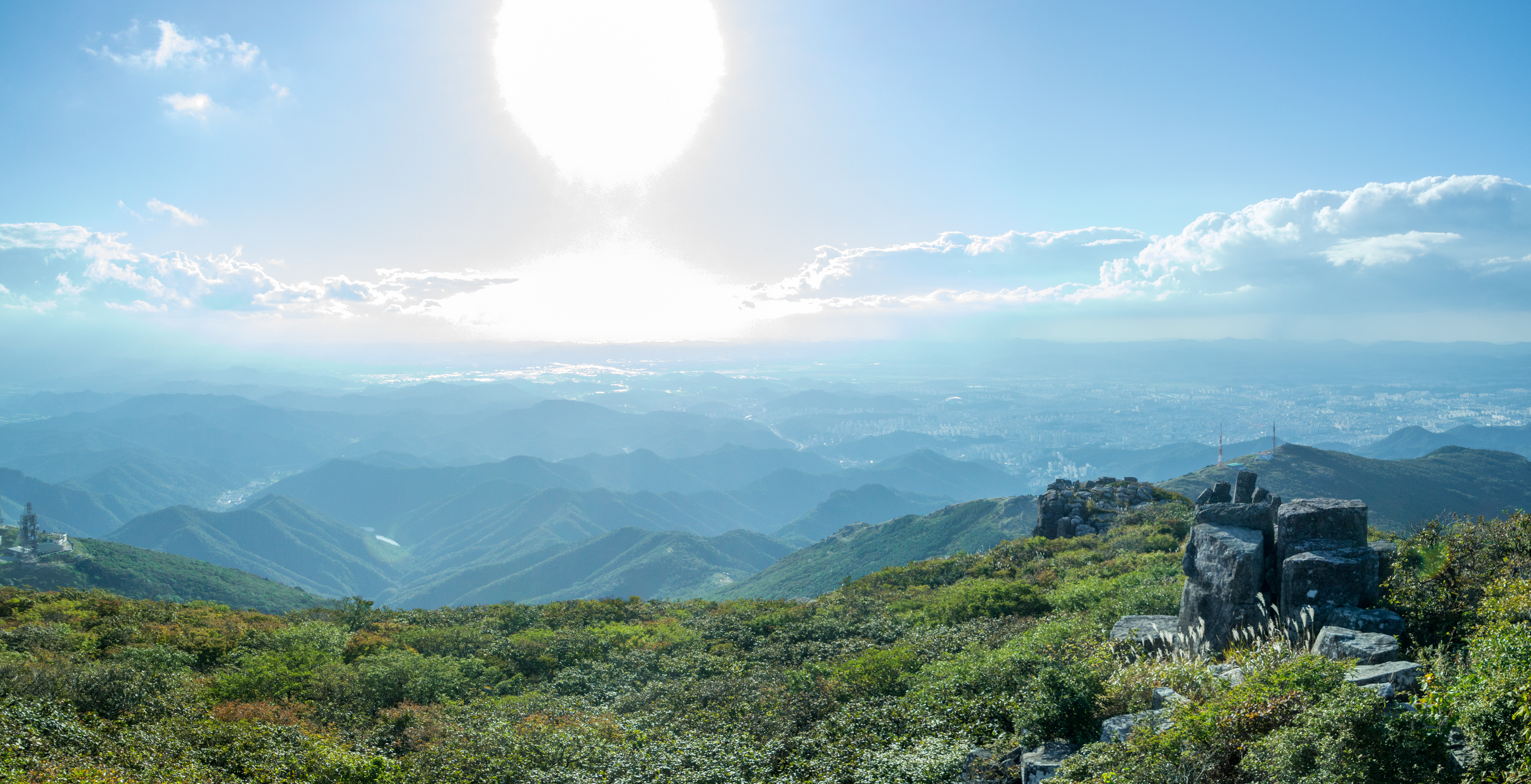Gwangju Lyric
Written by Saul Latham
Photographed by Wilson Melbostad
Gwangju, aren’t you glad you’re here.
Gwangju, Gwangju, the Jurassic rocks sing, on top where the trees swing, stop and you may see this city sea on these islands in the rough urban sprawl. A sediment sentiment in the cemeteries below, shouldered by towered human nests, screwed into the rocky past. Gwangju, turn your eyes to your rivers, streams, to the mountains and gleams, to the sun’s beams. Tilt your ears to Seu-mi, who’s on in Suwon, fingering the piano amidst a harmony of a hearty vernacular.
Blue in the sky, red kimchi, and eating alone. Maroon leaves as browns arrive, and the dusk dreams with its people. Autumn makes its sound as old life falls to the ground. Eternity in transit vanishes. Ephemeral feelings are found, around lakes, folk bound and smell the trees drifting to a doze, as the sun throws shadows, long, tired shadows, so pretty and fleeting, stretching like Joseon children, yawning, rubbing Joseon eyes.
Jangseong sings about the dam at Damyang, and yeh Naju, Hwasun, and Bitgaram did. All the while, a simple man enjoys a simple plain rice, and an old farmer pushes carrots in a pram. Apples, dried peppers, dried fish and chatter, chips and flattery; batteries charge in the PC bang-bang-pow, a GS25 dash dodging bags of trash on zebra stripes rosied by rain and red lights, reflecting sights of deals, crabs, cabs, cash, and tinted windows. Corners are cut, fish hung outside Olive Young, and the same song playing over and over in the bedding shop.
In the cafes some jazz plays, bibimbap-bap do we hot or cold, my friend kimchi. Sing a song cinnamon, in Hangul would you please, free me of my tongue. Swish English wished bub-eyed like fish in the tank outside, always traveling yet always here. I’m told it’s getting cold, so hot please. I’m not sold on those plastic cups. Give me some china.
Korean red blues, choose a green go-go, go Chungjang-ro, row row your float of waffles in the wind. Sow your row of lies, clothes, sneakers, and bags, see the sneakers and barbeque sauce dags and notice the beautiful artistry of the homeless actor in rags. Like a knight, he comes questioning all you do Chungjang-ro; a messiah of rags, no tags, no flags, only quiet imagination and action; a life of meaning, streaming on, gleaming with truth. I stared at you staring at him. I judged you judging him. I caught myself and turned, bumping into a mannequin or two, sharing the trip with the few. We learned.
Mudeung-san’s father must’ve been grand.
The Shinse-guys, men cured with girls, haircuts, curls, or in blue suits, with pictures of fruits and English lines on shirts of friends, eomma, oppa, Olleh, what’d you say to a buffet, or you wanna see a movie? 201 Gwangju News, CBS, MBC, competing views, Kakao notification, unable to choose a destination, to know what to show or what to see. Gimbap and traffic rolling chamchi and words, in wheels of seaweed, it feels like we need. Old government housing, rained on, blown on, yelled in, loved in, slept in, and dreamed out of, onto a wallpaper sky sitting behind other blocks more bright and less realistic than any man-made recreation. Perhaps a ramyeon, a latte, or a spa when Lotte closes. No, Gwangju must get its beauty sleep.
A taxi driver with hair reaching halfway down his back. He’s got the cool speed sunnies. He’s dressed completely in green like Dooly or Yoshi and has white gloves like Luigi. The emerald of the city, a kind of site tourists can’t dream of. “Unam-dong?” – “Unam-dong?” – “Neh, Unam 3-dong, juse – yo!” – “Yo, let’s sing along to Lee Moon-sae.”
On the corner of one street and another, a young man throws his cigarette pack in the gutter and lights his fag of death in an empty prayer. Unam-dong, what’s wrong with the old lady picking it up out of the gutter? She’s already halfway to the ground with her troubled back bones. Gwangju, she’s stuck in mortal bow; bowing to all as she sweeps the streets. I saw the young not see.
Books in Buk-gu are read and yellow, being left by the rest for dead. Still living and resting; now testing in the company of a forest, not too far from chicken and beer, or a tea at home. Oh tonight, autumn’s autonomous rustle turns up howls in typhoon’s streets. It’s all a friendly reminder of shelter’s warmth and a lover’s palm.
The Author
A Tasmanian writer of words and music, Saul Latham currently lives in Gwangju and is a big fan of free time. The best thing he’s ever done is to run.



